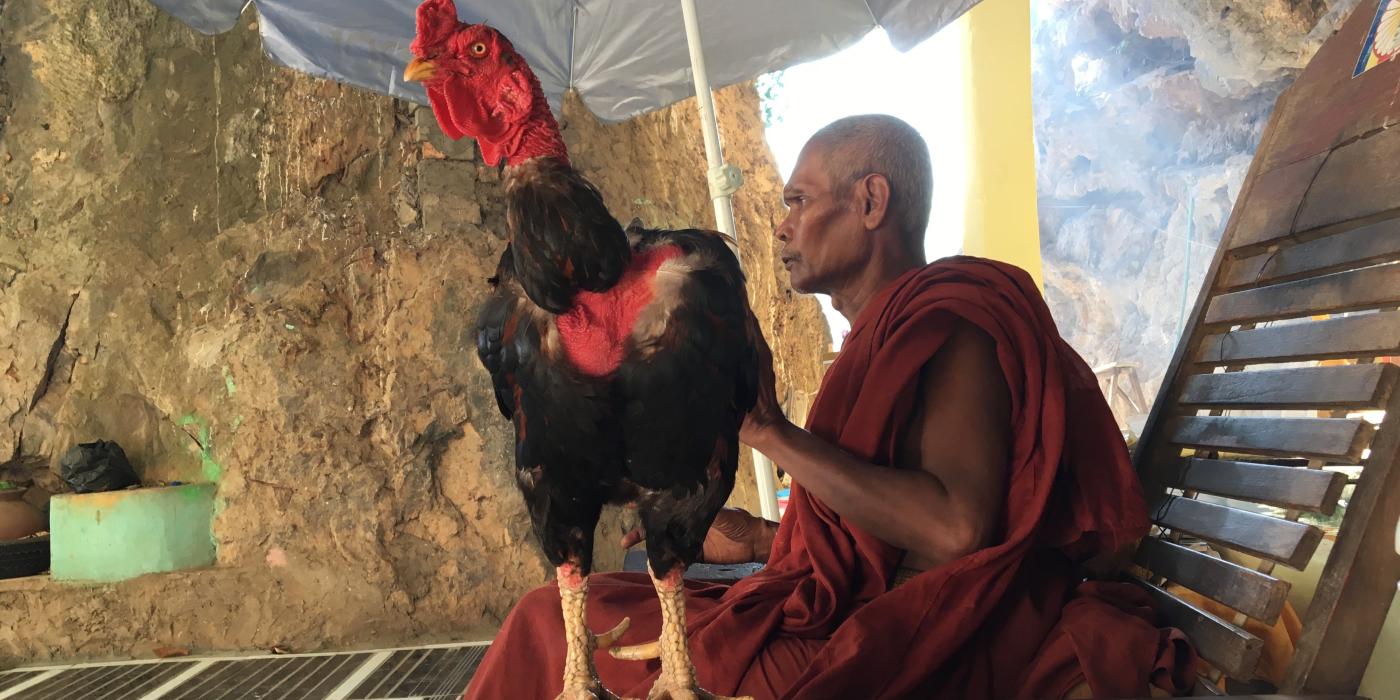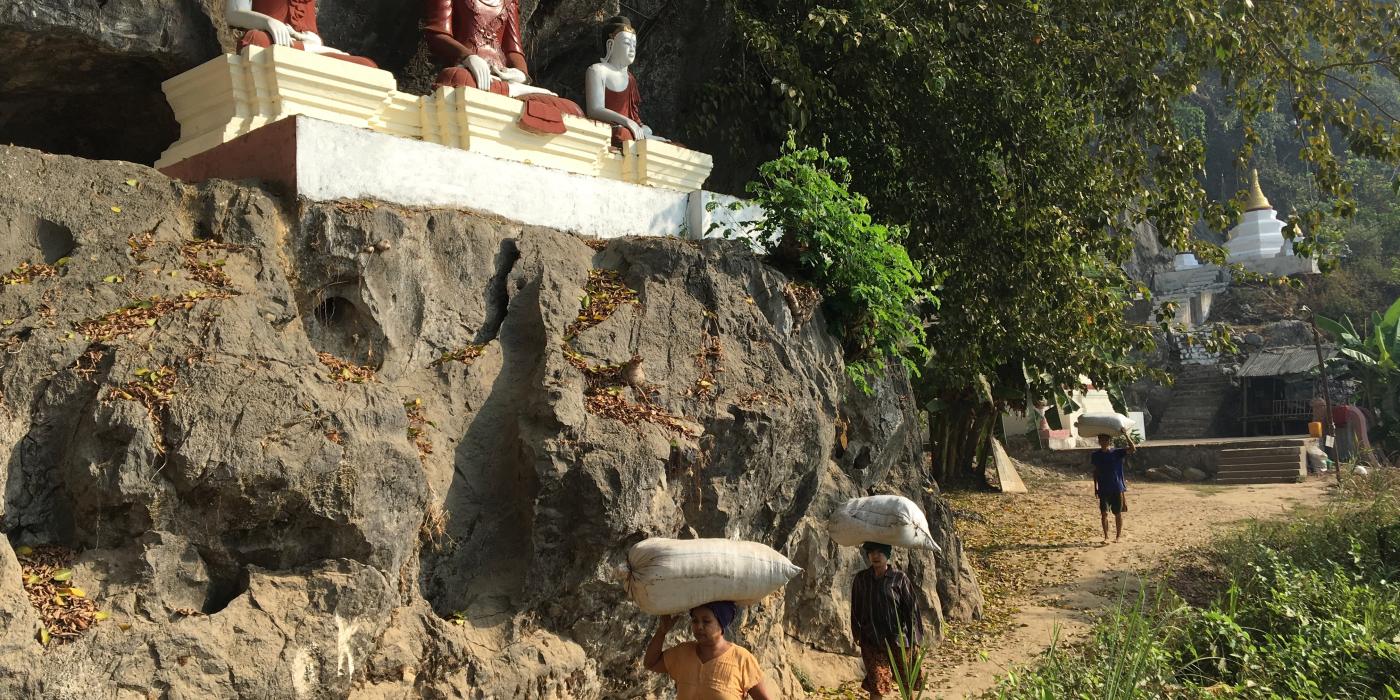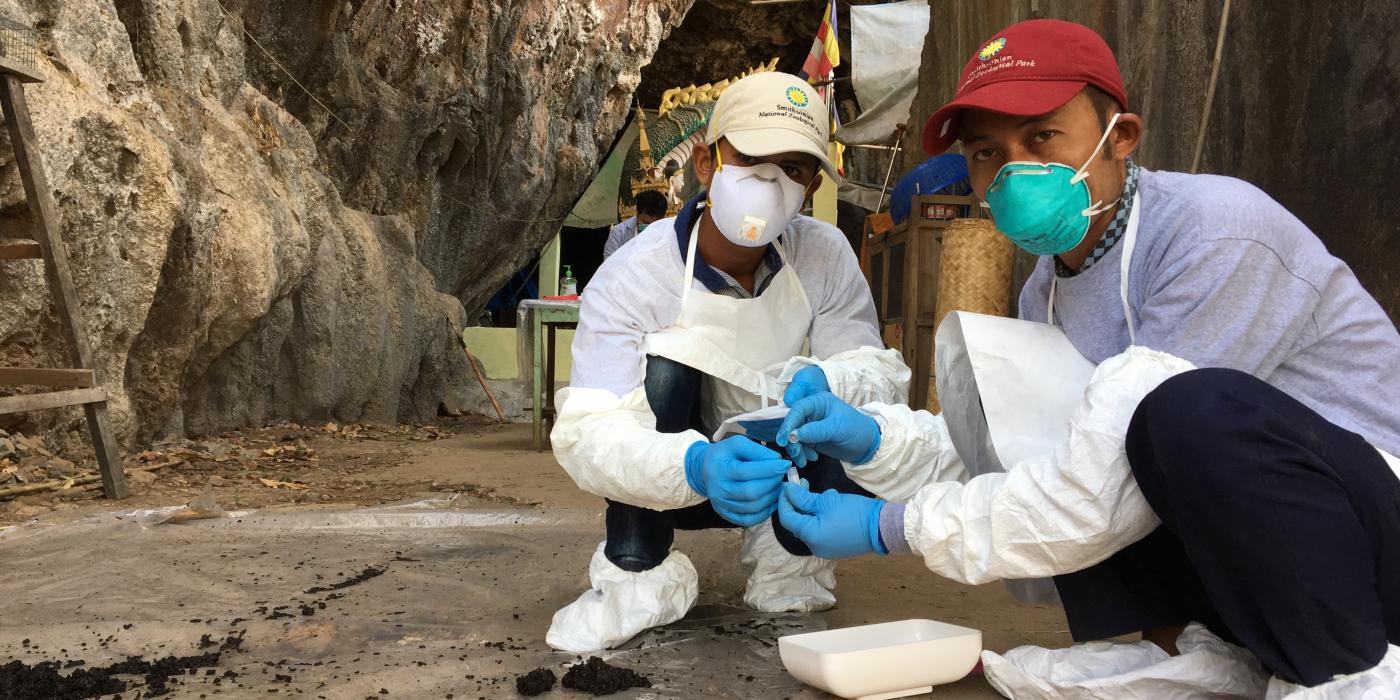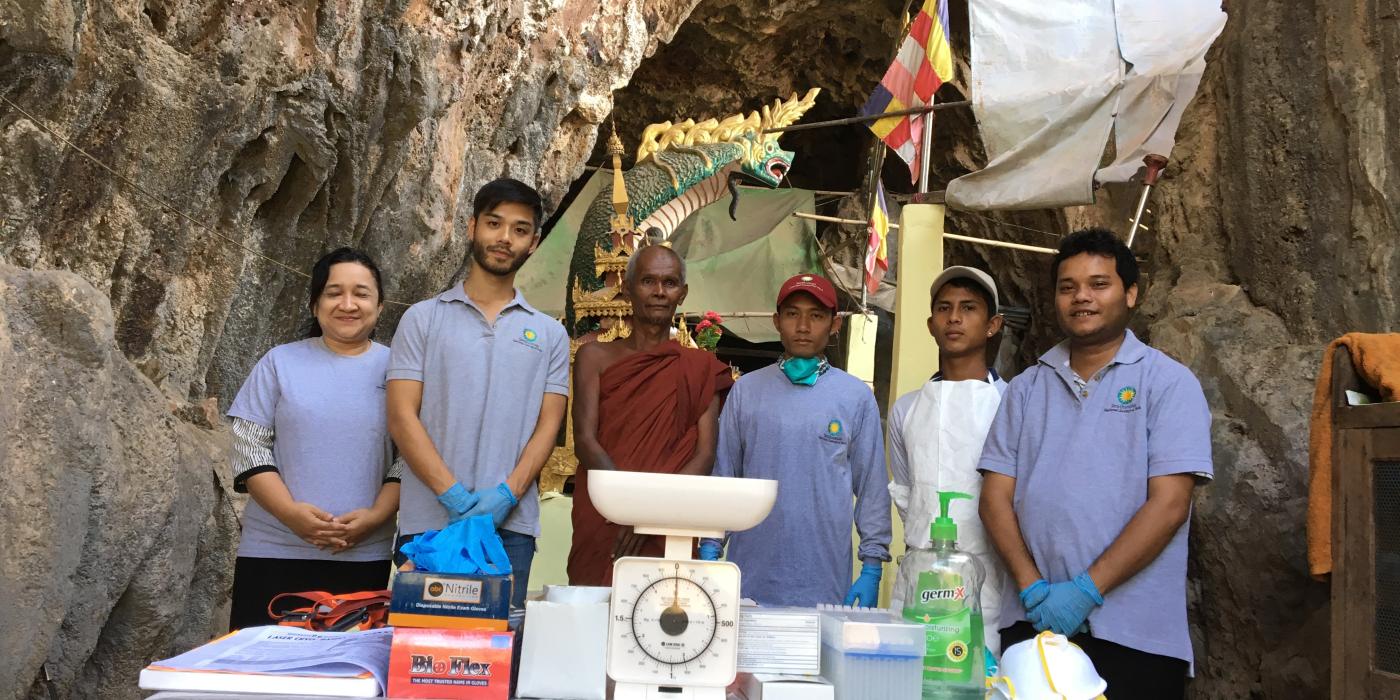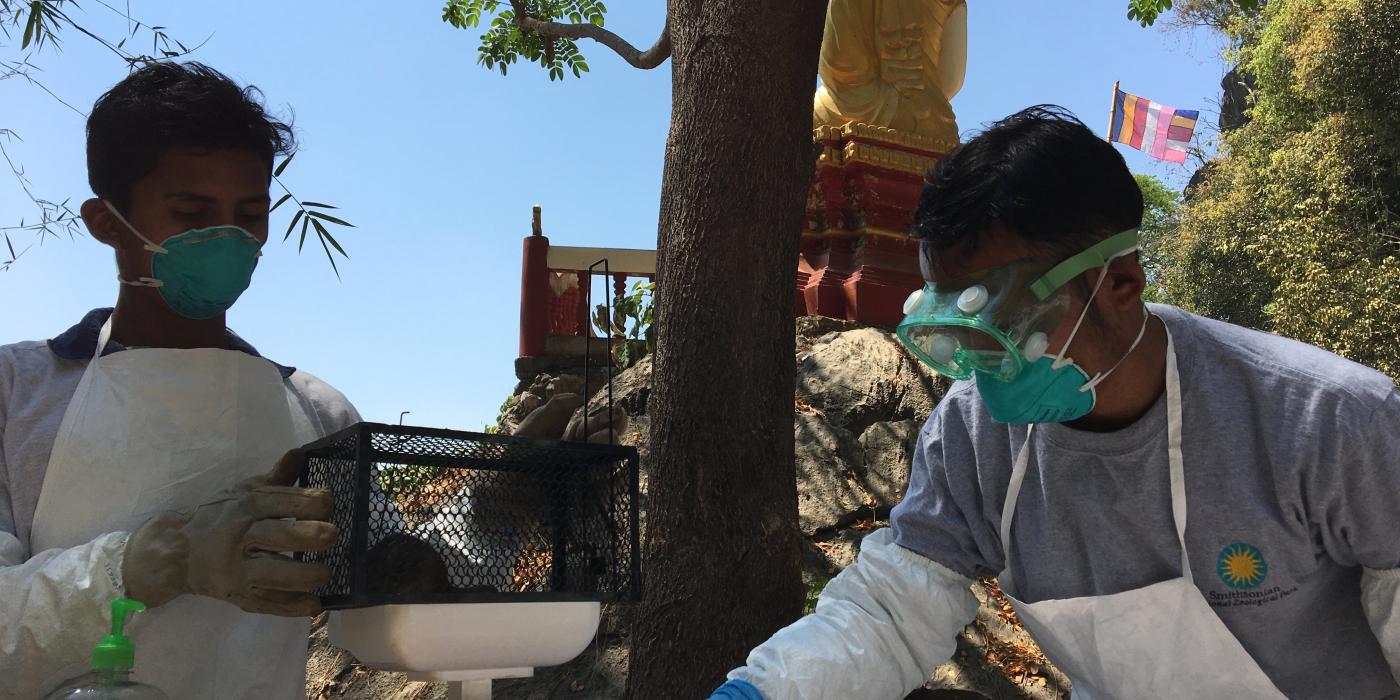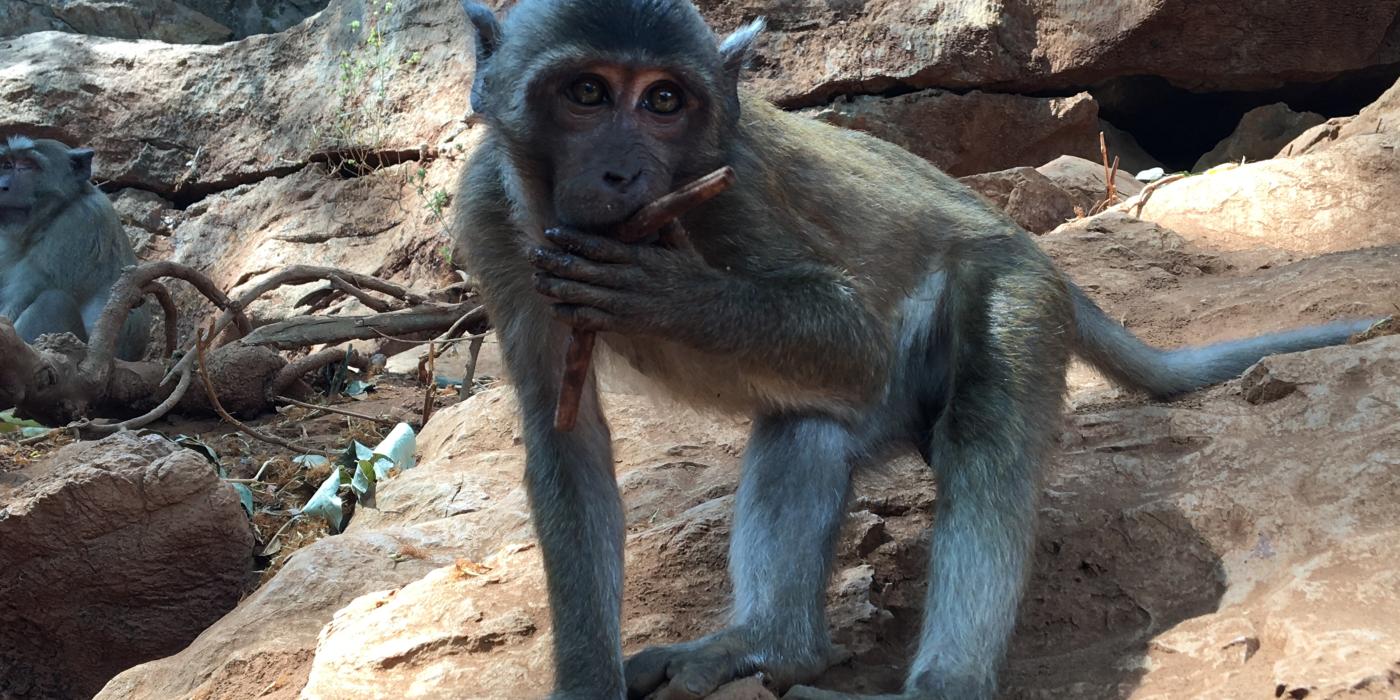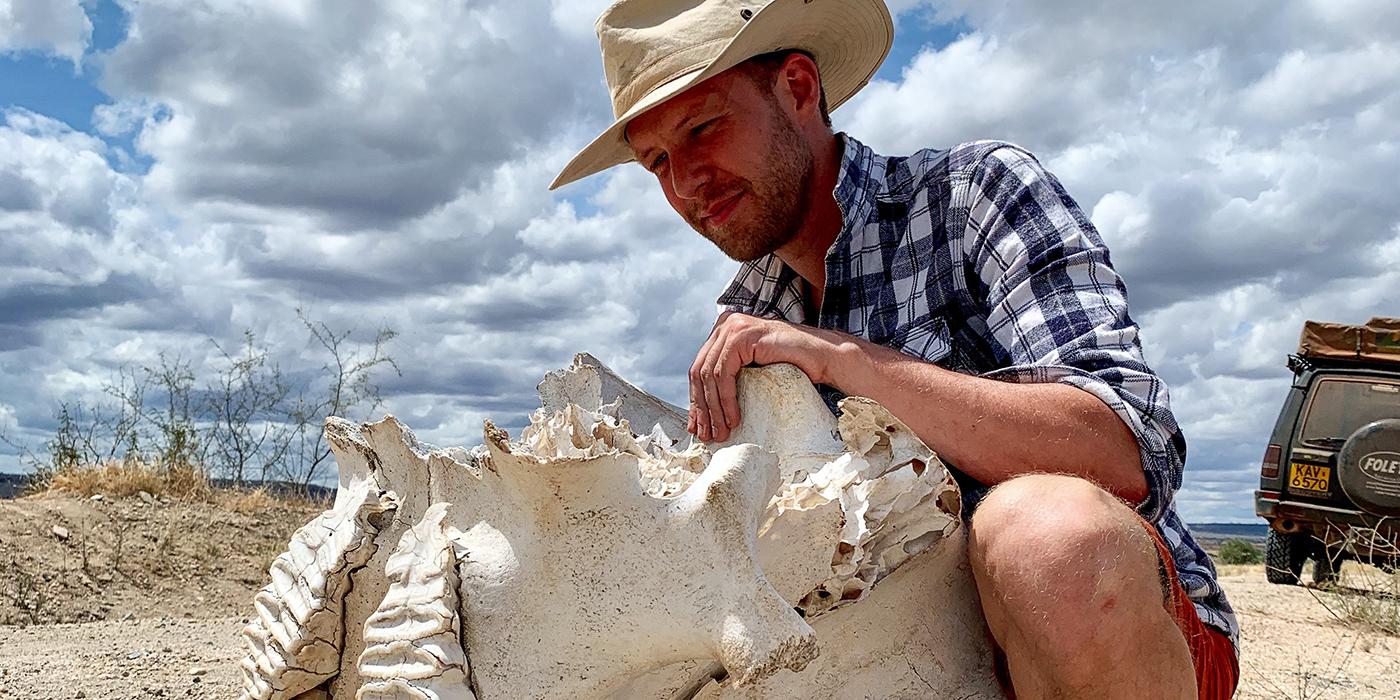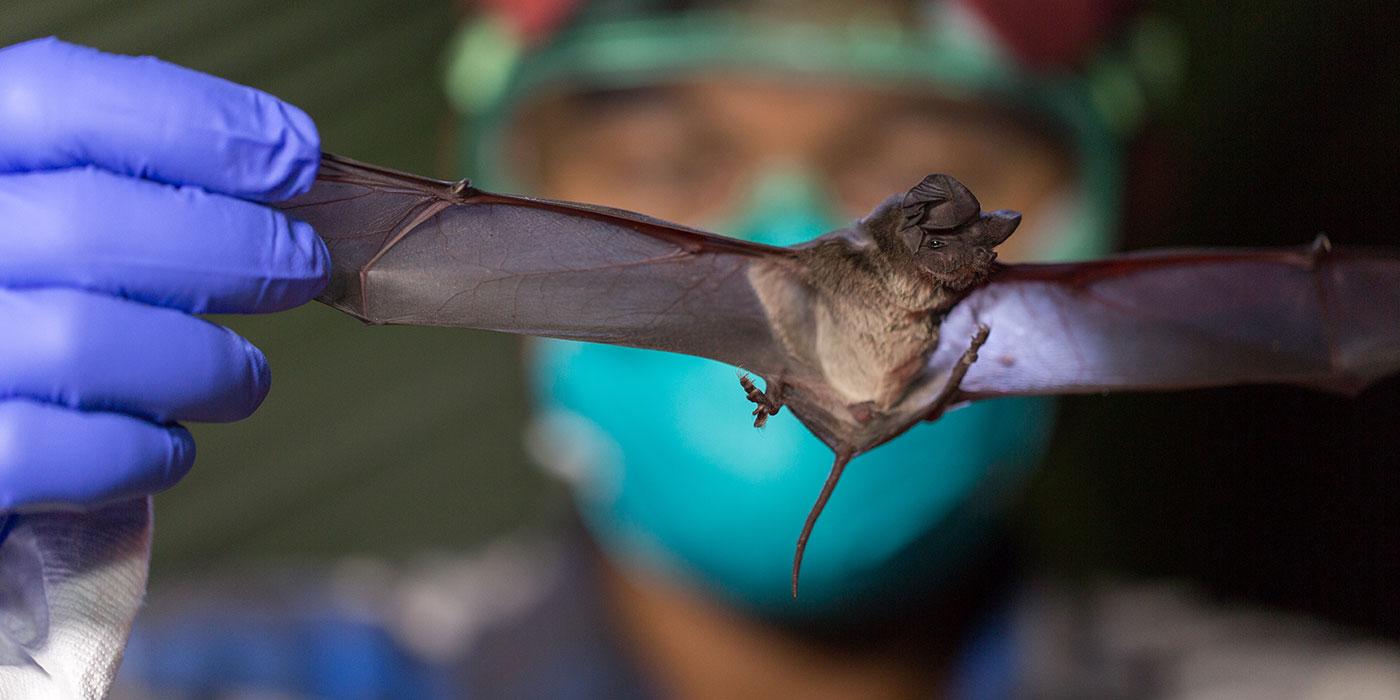Earth Optimism: Predicting the Future of Health
The Smithsonian Conservation Biology Institute’s (SCBI) Global Health Program is conducting viral surveillance in Myanmar for the USAID|PREDICT program, a worldwide effort to detect viruses that may pose a danger to public health. The Global Health team is sampling at the Hpa An caves, an area bustling with local enterprise, religious activity, wildlife and tourism.
These caves are sacred and filled with monuments, statues, and altars kept by Buddhist monks. Millions of small bats make their homes in the cave ceilings, providing a rich source of guano that is collected and sold by local merchants in large bags. The guano is an excellent fertilizer, but it is also a critical source of information in the PREDICT program, which uses non-invasive sampling of fresh guano to investigate for the presence of viruses without having to trap bats.
The caves also shelter numerous small rodent and shrew species, which must be humanely trapped and tested. The setup for this is elaborate: the SCBI team prepares to weigh, measure and swab the small mammals that have been captured in the caves. It takes a gentle but firm grip to hold the rodents still for their exam. Each rodent must be weighed and measured in addition to having samples taken to evaluate for viruses.
The Hpa An region is home to troops of macaques, and researchers use an ingenious method for obtaining saliva samples. Short, absorbent ropes of material are soaked in juice, which encourage the monkeys to chew on them vigorously. When they eventually drop the sampling ropes, scientists can use the saliva on them to detect viruses that the macaque may be carrying.
By testing samples from a wide array of animals in areas frequented by humans, the PREDICT program aims to identify potentially dangerous viruses in the places they are most likely to endanger humans. Smithsonian’s Global Health Program is dedicated to this and other projects protecting human and animal health worldwide while collaborating with and training resident scientists in their home countries.

